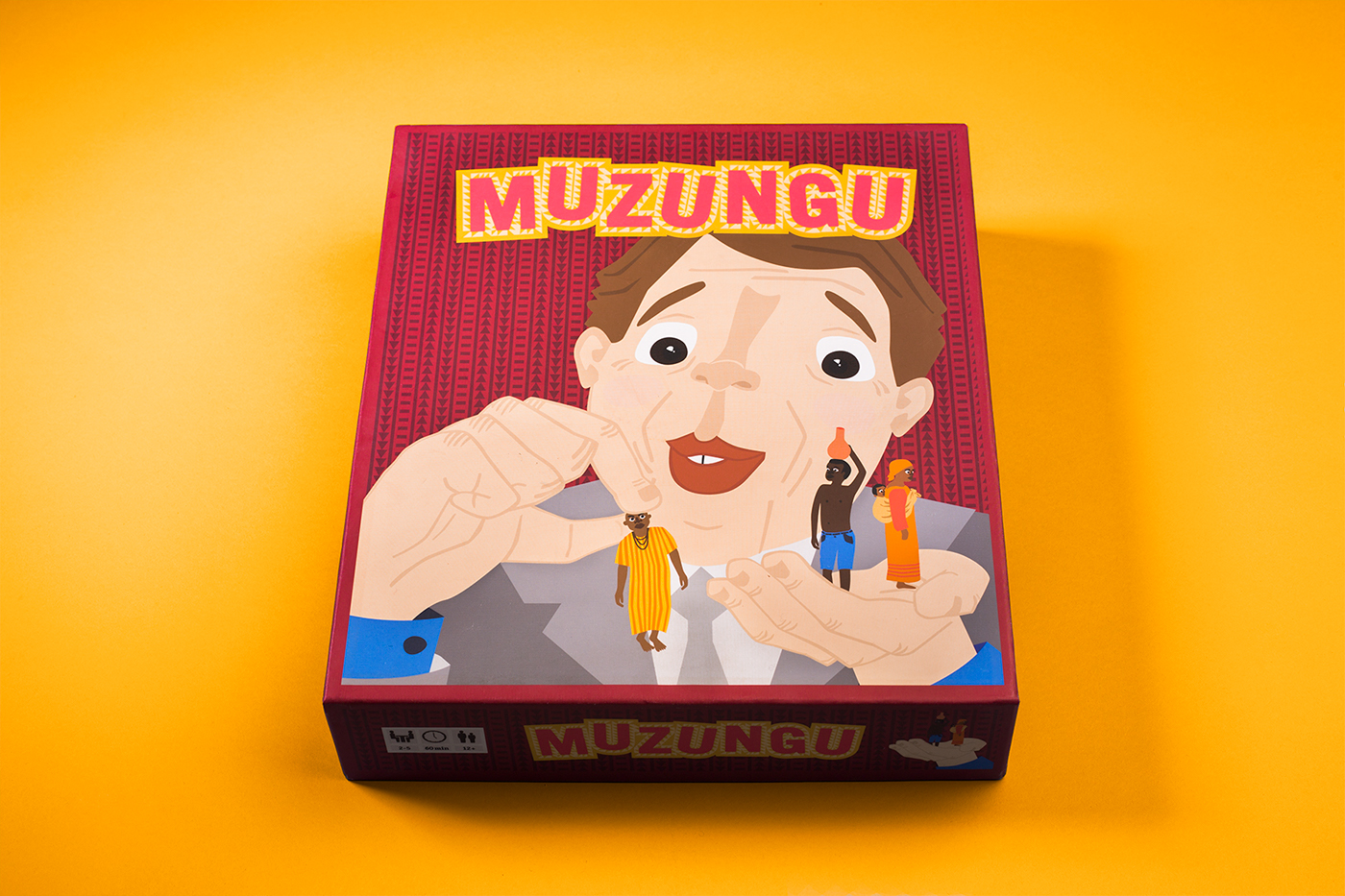
MUZUNGU
Mzungu ([m̩ˈzuŋɡu]) is a Bantu language term used in the African Great Lakes region to refer to people of European descent or to "someone with white skin".
This game illustrates the complicated interplay of international politics, world trade and the often eccentric view of Western countries on the African continent. Enjoy this game of real life.
Poor, powerless Africa: This image of a continent in constant need of help is omnipresent in first world countries. But we should ask ourselves, if this image does depict reality.
MUZUNGU offers a look behind the scenes.
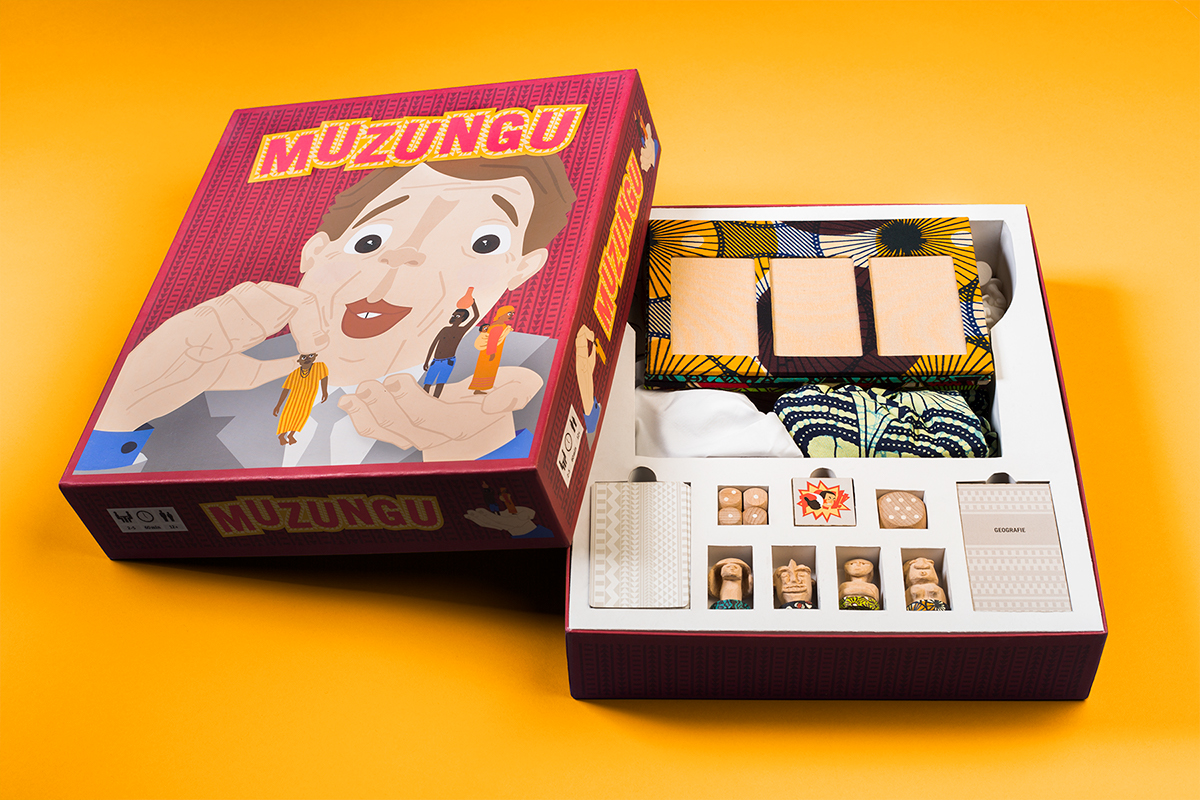
The cover illustration
It depicts an often unconsciously racist and ungracious attitude of people from developed countries towards people from the African continent. »They« are viewed as poor and powerless. We are certain, that without our help they would be doomed.
Most of us have little to no knowledge of the political and economical situations in the different countries. Still we are sure, that we know what the people there need. Even worse: Oftentimes we don't realize that, as first world citizens, we even profit from their poverty.
Thus the cover image is an exaggeration of reality. The white man plays with the black puppets. You can almost hear the guy say "Look at them, they're so cute!"
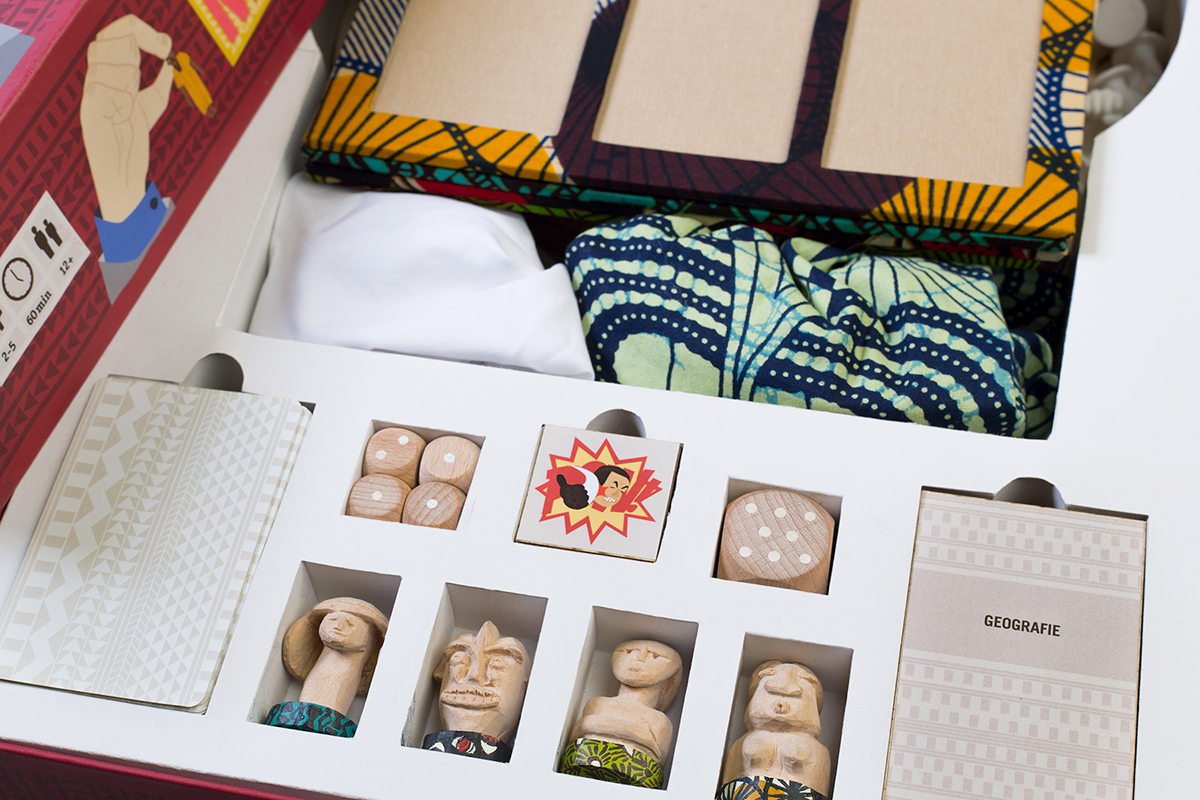

Rules
Four imaginary African countries try to climb up the pyramid representing Maslow's hierarchy of needs. During the game they can acquire and trade goods. They then use those goods to play action cards representing political, economical and cultural interventions to change their fate.
Buy. Trade. Act.
It sounds as simple in the game as it does in real life.
But is it?
Introducing: The Boss.
This single player represents the interests of the West. Not those of the common people, but those of politicians, lobbyists, companies. While it may seem like his intentions are good, often he does the very opposite of supporting the African countries in their struggle.
Might it be that behind the facade of the good Samaritan he's merely doing what's best for himself? Is he not just trying to ensure his own luxurious lifestyle? What would really happen if developing countries would rise up to the living standards of West?
Might it be that behind the facade of the good Samaritan he's merely doing what's best for himself? Is he not just trying to ensure his own luxurious lifestyle? What would really happen if developing countries would rise up to the living standards of West?
The African players have to use clever tactics, plan ahead and work together. With a little bit of luck they can outplay the "Boss". Maybe they can finally become a society free from Western paternalism.
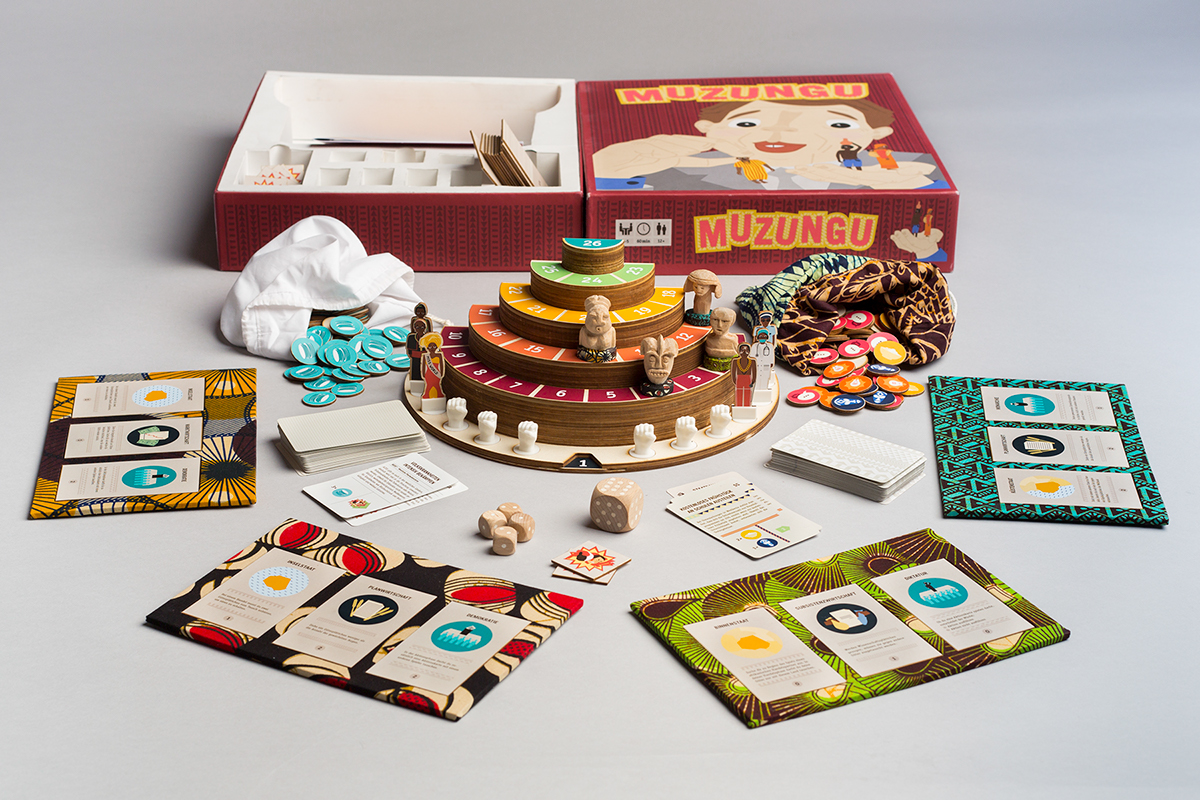
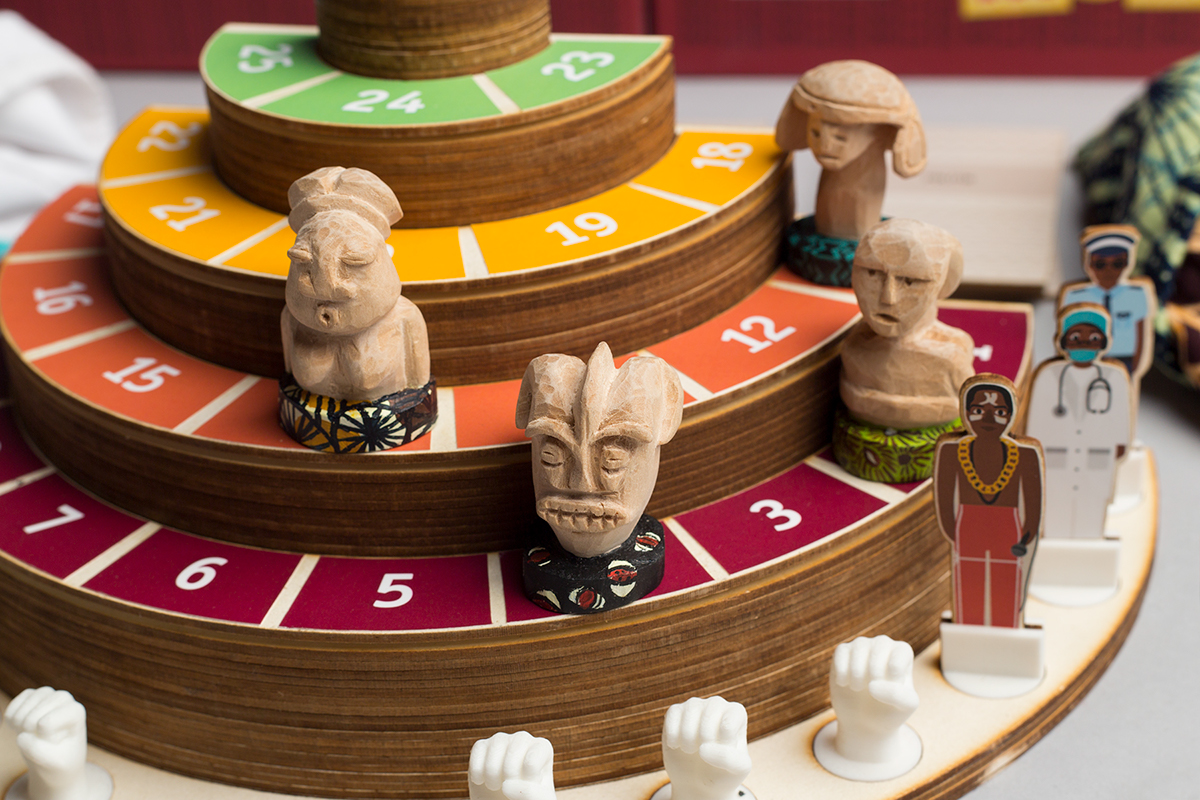

Action cards and dice of the African countries
The interventions suggested on the cards are based on real events. They show that it doesn't need a white man from far away to bring development to a country. Oftentimes the most notable positive changes come from within the societies.

Action cards, dice, and punishment cards of the Boss player
The titles of the interventions mostly sound quite neutral, but the text below shows the extensive consequences that come with said interventions. If a move includes morally unacceptable or unfair behaviour, the Boss gets a slap-in-the-face-card.
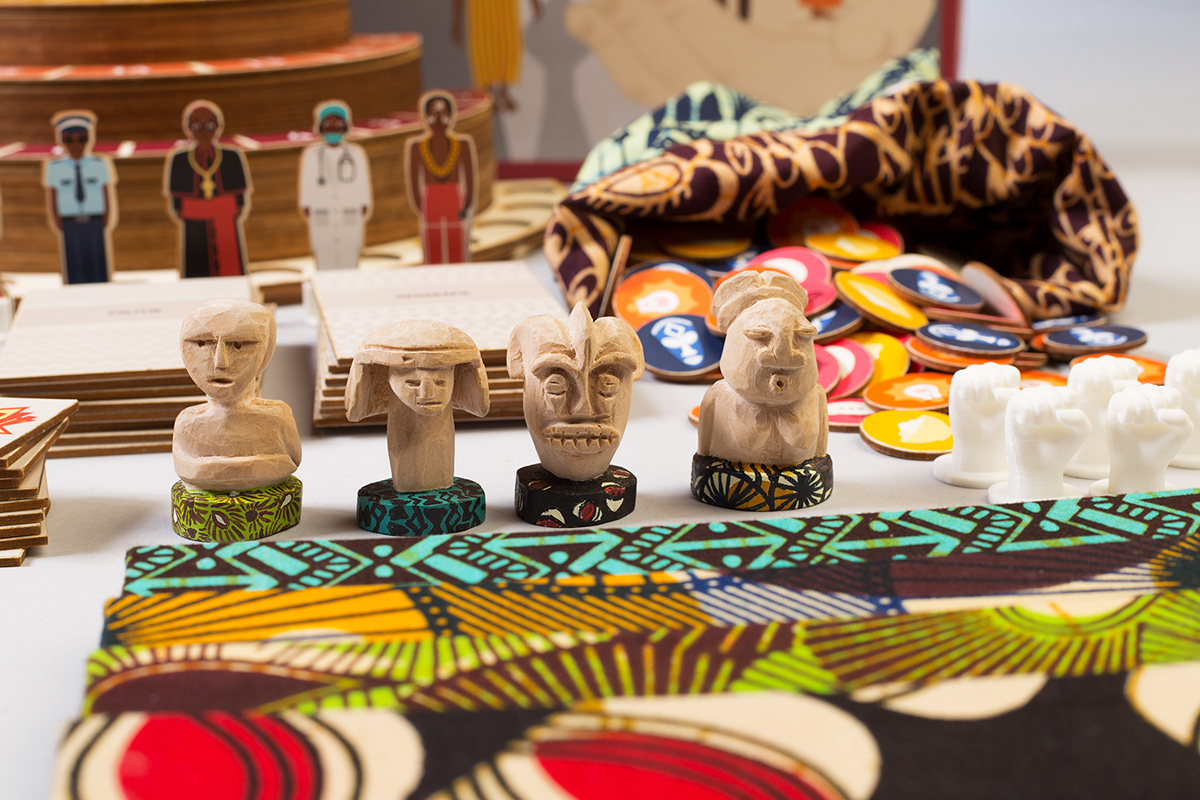
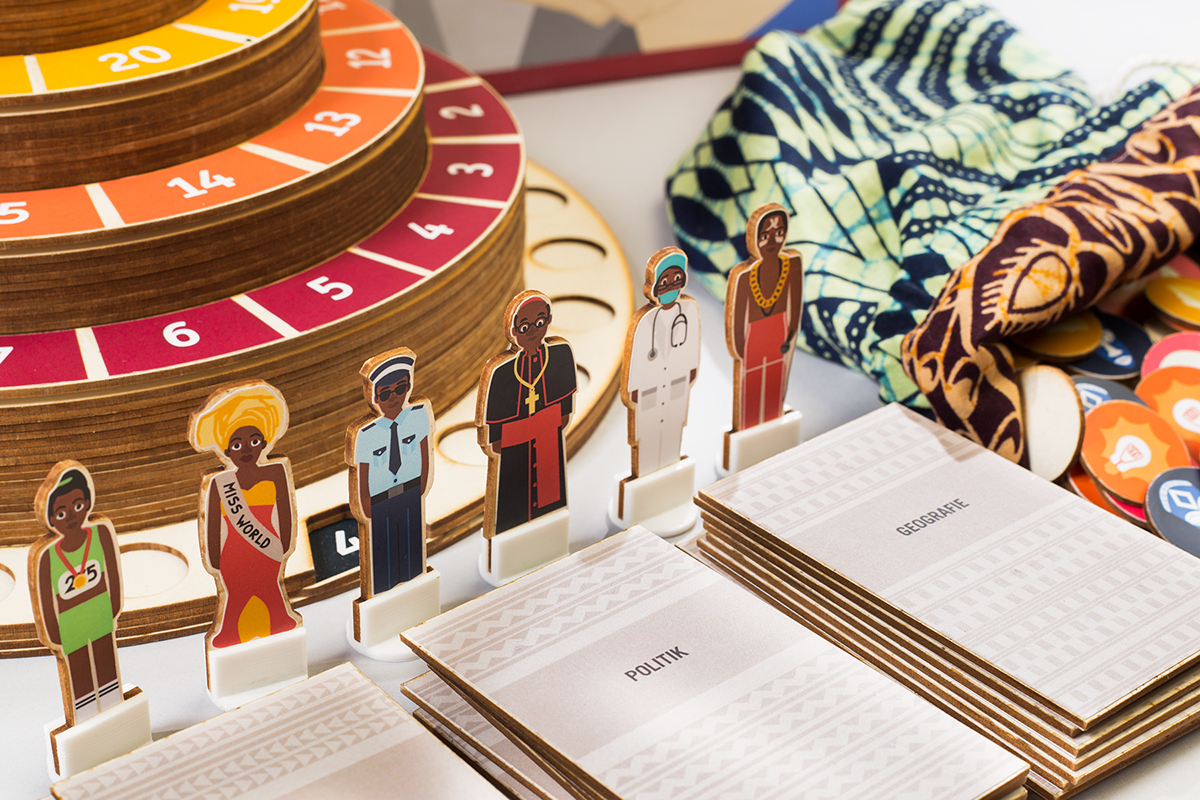
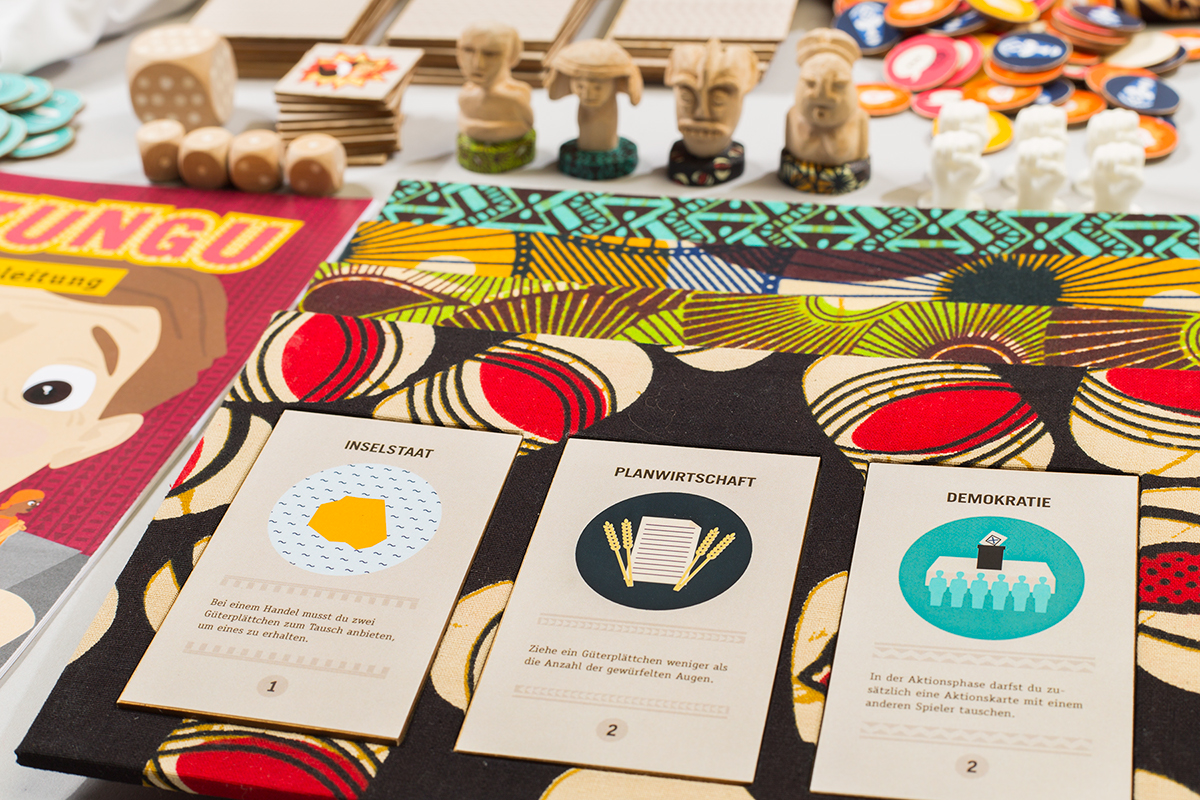

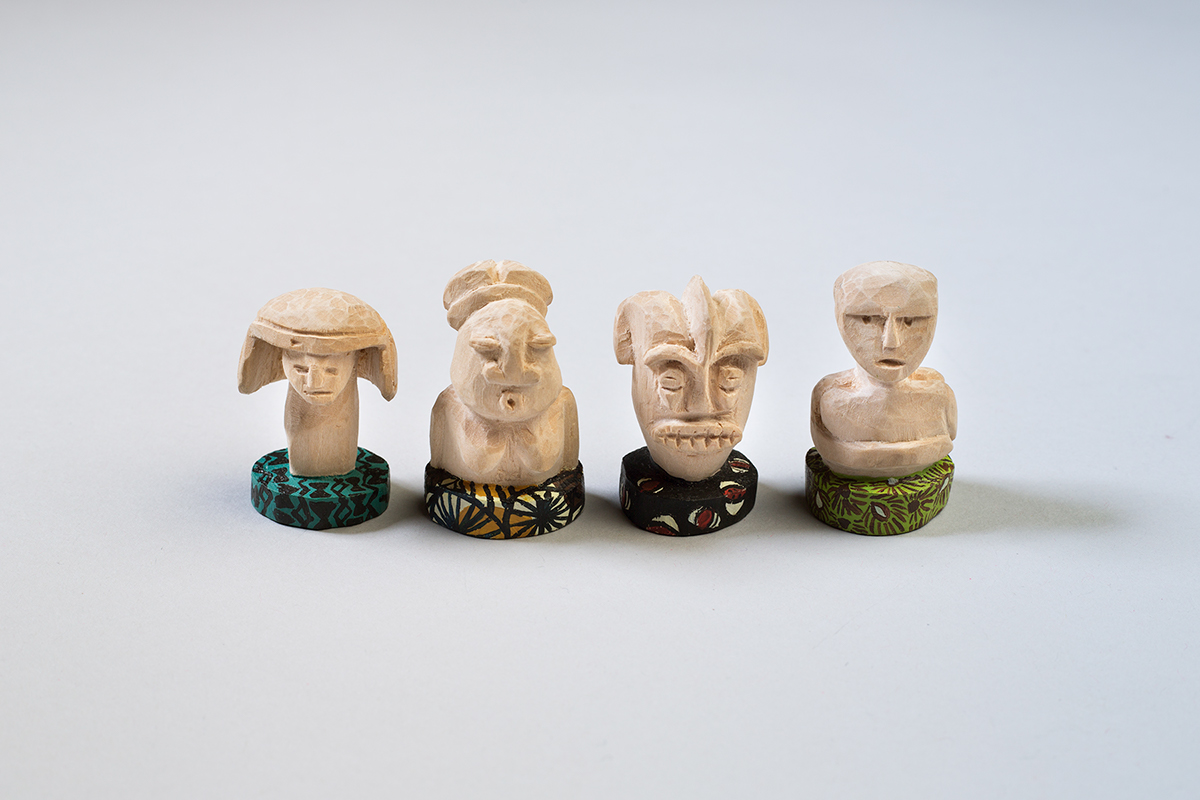
The inspiration for the hand-carved playing pieces came from African figurines and masks from various ages and descents.

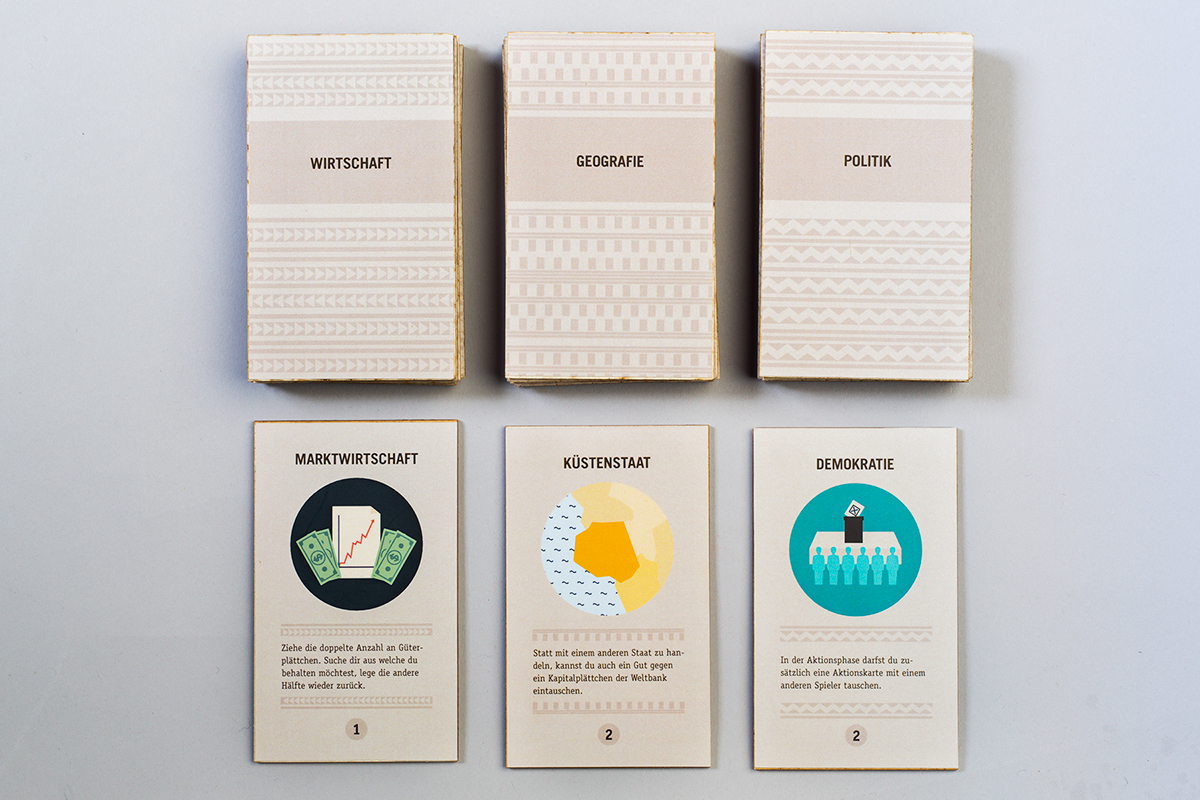
Before the game each player has to draw attribute cards from a deck. They define him/her as a country: geographical location, economical and political system. These attributes affect the course of the game for each player. The sum of the numbers on the bottom of these cards determine the starting point of each player on the pyramid.

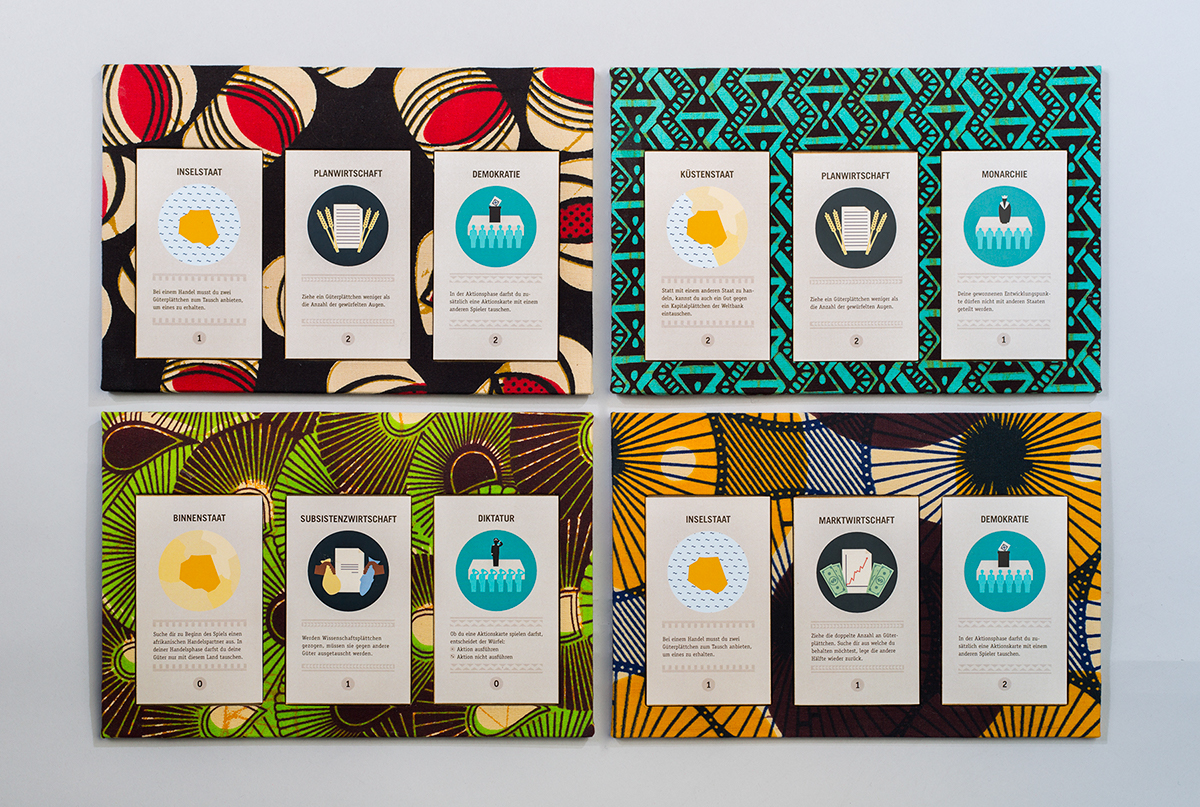
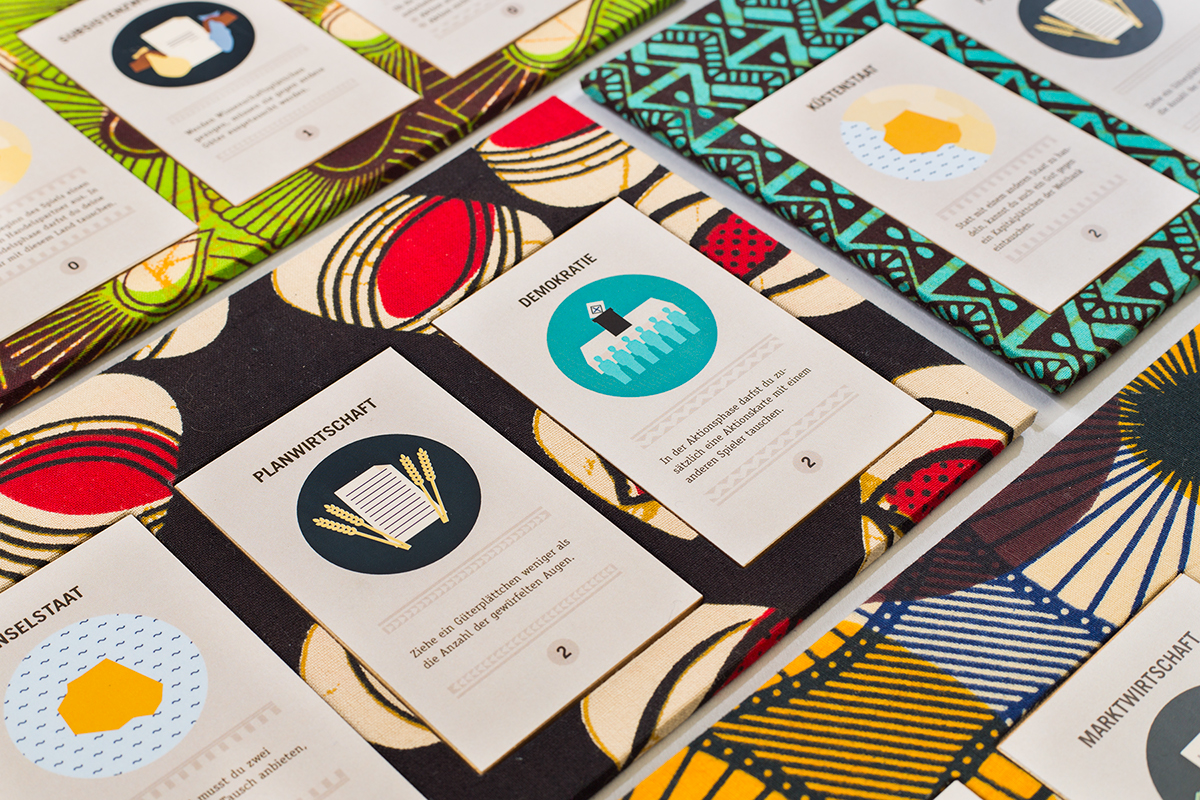



The manifested inequality between Africa and the West is represented by the size of the dice and the number of pips.
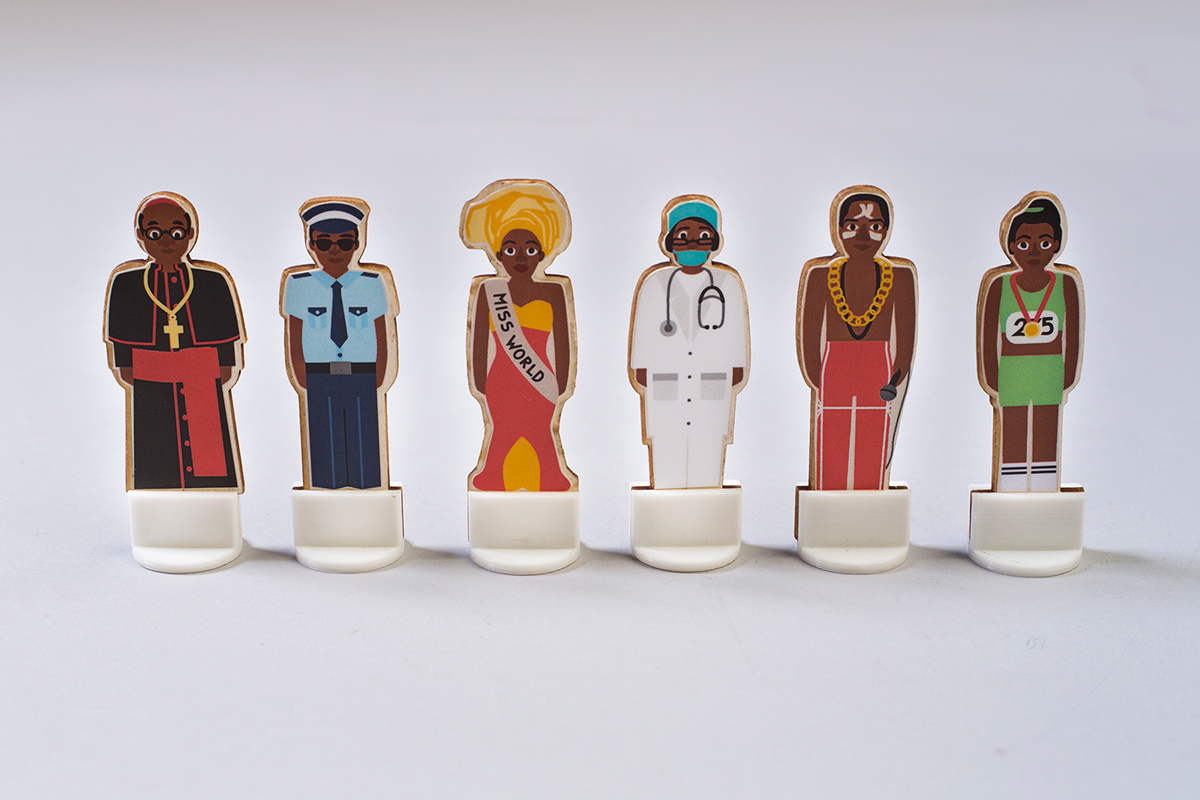
These figurines symbolize some of those characters of a society that we tend to forget about in African culture. Three of them depict actual people, can you spot them?

This project isn't meant to offend anybody.
It simply tries to actuate a discourse about this topic and to make us question our view of ourselves and the world.
Thank you for watching.


